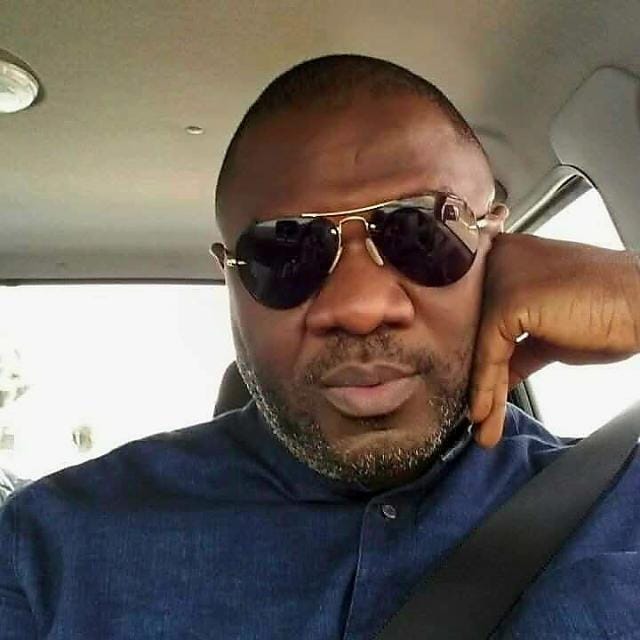Kwame Sowu Jnr.
In October 2006, in response to a public invitation from the then Minister for Finance and Economic Planning, Hon. Kwadwo Baah-Wiredu, I submitted a set of policy proposals for consideration in the drafting of the 2007 National Budget.
At the time, I was serving as the Marketing and Sales Manager at Tropical Cable and Conductor Ltd in Tema. I prepared the submission from my office and sent it via email on Friday, October 6, 2006, at 11:15 a.m. to the Ministry’s official inbox (minister@mofep.gov.gh) and its general address.
Among the five proposals I submitted was one that would eventually crystallise into the now-familiar Communication Service Tax (CST), widely referred to as the “Talk Time Tax.”
I recommended a 7 per cent levy on mobile phone usage. At the time, Ghana had roughly five million mobile subscribers, each spending an average of 633,330 cedis annually on airtime (pre redenomination figures). I projected that such a levy could yield approximately 0.22 trillion old cedis in annual revenue, roughly GH¢22 million in today’s terms after redenomination in July 2007, which removed four zeros from the currency. I included this conversion to help decision-makers appreciate the enduring value and scale of the projected returns.
Though the CST was officially introduced in 2008, some two years after my submission, the structure and rationale behind the tax strongly mirrored my original proposal.
Data from the Bank of Ghana and the Ghana Revenue Authority suggests that since its introduction in 2009, the CST has consistently generated hundreds of millions of Ghana cedis annually. I estimate that cumulative revenue to date stands in the region of GH¢3 to 4 billion, potentially higher as recent figures are compiled.
I welcome official clarification from the Ministry of Finance or the GRA to refine this estimate.
While I received no public credit at the time and indeed, recognition often remains elusive in our governance space, I continued to contribute quietly. In 2010, I was gratified to see my name listed among contributors in the official Budget Statement and Economic Policy, on page 337, where I was acknowledged as Kwame Sowu Jnr, Energy Synergies. It was a gesture I deeply appreciated, not for vanity, but because it signalled that citizen voices matter and national input is valued and heard.
In that same spirit, I wish to extend my sincere congratulations and respect to the fellow individual contributors acknowledged on that same page, whose efforts and ideas no doubt enriched the national discourse. I proudly salute:
* Abroquah Richard
* Denis Rexode
* Lawrence A. Clouch
* Steve Ofosu-Danquah
Each of us, in our own way, responded to a national call. Our individual contributions may not always make headlines, but they form part of the scaffolding upon which stronger policies and better governance are built.
Beyond the Communication Service Tax, my 2006 submission included several other proposals rooted in concern for fiscal responsibility, revenue enhancement, and public accountability.
I proposed the formation of a Special Value for Money Task Force to carry out in-process and post-contract audits on public projects. This, I believed, would serve as a preventive quality assurance mechanism, especially critical in sectors like road construction, where premature failures (like some seen in East Legon) often result from lax oversight and poor workmanship.
Another idea was to introduce vehicular congestion levies for access to designated city areas. This dual-purpose measure would reduce traffic and generate revenue for metropolitan authorities.
I also proposed that government encourage community-funded infrastructure initiatives in high-income neighbourhoods, akin to the Self-Help Electrification Programme. Communities would contribute a percentage of the cost upfront, after which government would step in with matching funds to complete roads or street lighting projects.
In a similar spirit, I suggested that first-class roads be designated as toll roads, while untarred roads in affluent communities like Spintex, McCarthy Hill, and East Legon could be offered under Build Operate Transfer (BOT) arrangements. Developers would finance and construct the roads, then recover costs through tolls, ensuring better roads without draining limited public funds.
These were not radical ideas. They were practical, context-driven solutions rooted in fiscal realism and a desire for equitable development. And they were offered not to win accolades, but to help shape a better Ghana.
Looking back, I take quiet pride in having contributed, even if modestly, to policies that have endured. More importantly, I share this story as a gentle encouragement to all Ghanaians. The work of building a nation is not the preserve of those in government alone. It calls for the best ideas from every corner, regardless of profession, political allegiance, or social standing.
Let us create a culture where the smartest, most thoughtful contributions are welcomed from across the aisle and the streets, where solutions matter more than party colours, and where humility and evidence-based thinking are prized above noise and populism.
That is how great nations are built. Quietly. Steadily. Together.
Kwame Sowu Jnr
July 2025
Accra, Ghana
DISCLAIMER: The Views, Comments, Opinions, Contributions and Statements made by Readers and Contributors on this platform do not necessarily represent the views or policy of Multimedia Group Limited.
DISCLAIMER: The Views, Comments, Opinions, Contributions and Statements made by Readers and Contributors on this platform do not necessarily represent the views or policy of Multimedia Group Limited.


